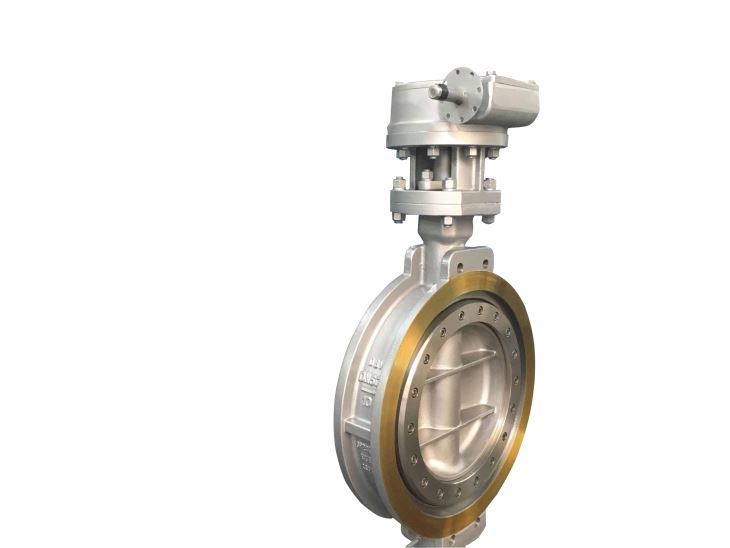FCT Triple Offset Butterfly Valve

FCT Triple Offset Butterfly Valve – Frictionless Metal-Seated Shut-Off for Critical Applications
FCT triple offset butterfly valves incorporate three precise offsets:
Shaft is offset behind the disc centerline (1st offset)
Shaft is offset from the pipeline centerline (2nd offset)
The sealing surface is conical, creating a cam-action closure (3rd offset)
This geometry eliminates rubbing between the seat and disc during opening/closing, making it ideal for frequent operation, high temperatures, and tight shut-off needs.
These valves are commonly used in oil & gas, power plants, chemical industries, and process systems where zero-leakage, fire-safe design, and low-emission performance are essential.
Technical Specifications
Design Standards: API 609, EN 593, ISO 5752
Size Range: 3” to 60” (DN80 to DN1500)
Pressure Ratings: ANSI 150, 300, 600 / PN 10 to PN 100
Body Materials: WCB, WC6, Stainless Steel, Duplex, Inconel
Disc Materials: Stainless Steel, Duplex, Inconel, Aluminum Bronze
Seat Type: Metal-to-Metal (Stellite®, CrCo, Tungsten Carbide)
Leakage Class: API 598 / Zero-Leakage (Class V–VI)
Temperature Range: -46°C to +600°C
End Connections: Wafer, Lug, Double Flanged, Butt Weld
Operation: Gear, Pneumatic, Electric, Hydraulic
Fire Safe: API 607 / ISO 10497 certified
Emissions: ISO 15848 / Low-emission packing available
Key Features
Triple offset geometry eliminates friction and seat wear
Metal-to-metal sealing for fire-safe, high-temperature use
Zero leakage shut-off even in extreme conditions
Long cycle life with low torque and automation-ready
Bi-directional sealing and bubble-tight performance
Corrosion and erosion resistant materials available
Applications
Oil & gas upstream, midstream, and downstream
Power generation (conventional, nuclear, combined cycle)
Petrochemical and chemical plants
High-temperature steam and condensate systems
Cryogenic and severe service isolation
Emergency shut-down (ESD) and blowdown lines